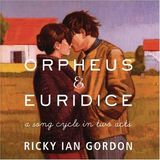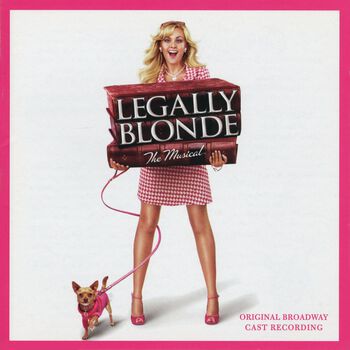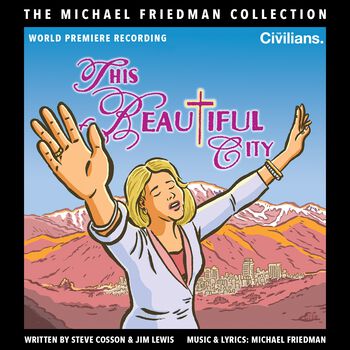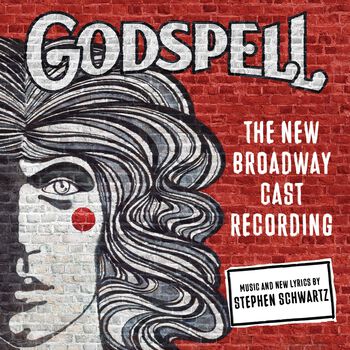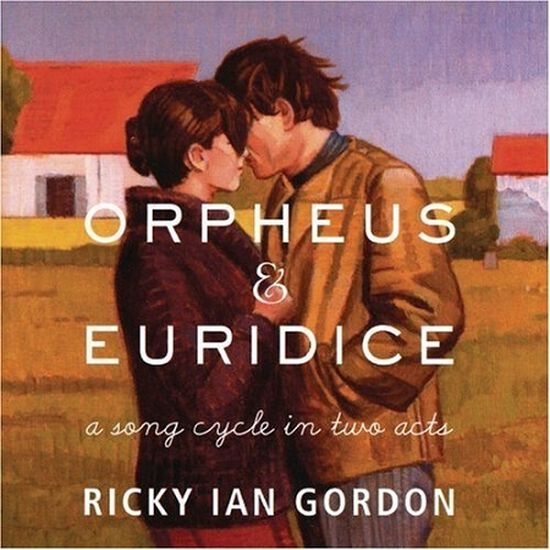
Ricky Ian Gordon
Orpheus & Euridice
$9.99
-
$12.99
Ricky Ian Gordon's Orpheus & Euridice, a song cycle in two acts, was commissioned by Lincoln Center for the Performing Arts. It was first performed on October 5, 7 & 8, 2005 at the Rose Theater as part of the American Songbook and New Visions series.
The Ghostlight Records studio recording reunites the three soloists from that concert: soprano Elizabeth Futral, clarinetist Todd Palmer and pianist Melvin Chen.
It is the first venture into the classical realm for Ghostlight Records. Kurt Deutsch, Album Executive Producer and label head, commented: "Ricky Ian Gordon is one of the most gifted composers working today. Whether in the musical theatre or opera worlds, his works are to be treasured and preserved for all to hear and it is our honor to have done so."
"Ricky Ian Gordon's song cycle, Orpheus and Eurydice, first heard in 2001, returned to the stage transformed into a theater piece to open Lincoln Center's American Songbook series on October 5. The work began in 1995 as a commission from clarinetist Todd Palmer, who needed a short piece for soprano, clarinet and piano to fill out programs of Schubert's similarly scored Shepherd on the Rock. The illness and eventual death from AIDS of Gordon's lover Jeffrey Michael Grossi prompted the composer to turn to the Orpheus myth, and what emerged was the text and later the score to an hour-long song cycle. Palmer enthusiastically embraced the work, and after its 2001 premiere, plans developed to stage it. Choreographer Doug Varone was chosen to direct; Palmer and soprano Elizabeth Futral would play Orpheus and Euridice, with pianist Melvin Chen and Varone's eight-person dance troupe filling out the performing forces. The Rose Theater in the Time Warner Center proved an ideal location for this starkly beautiful work, as the audience and stage are warmly embraced by each other. Set designer Allen Moyer created a delicate white cage enclosing what at first appeared an antiseptic, institutional waiting room, with straight-backed white chairs flanking a closed door. This large rectangular space was transformed over the course of the seventy-miniute show into flowery meadows, a dream home for newlyweds, the river Styx, Euridice's death-chamber and the fields of Thrace. Everything moved and was transformed: walls disappeared, chairs flew up and remained suspended over the performers' heads, even Chen and his white piano were prodded and rolled around on a platform. Gordon is a natural song composer; he distills the emotional essence of a poem with great skill and truth in a rapturously tonal style. In this piece, the gently pastoral depiction of Orpheus and Euridice's life together is especially successful.
For the libretto, Gordon employs AIDS imagery to inform the Orpheus myth, with powerful results: Eurydice dies in bed, not from a snake bite but from a mysterious wasting disease, while Orpheus witnesses helplessly, frustrated by the inability of his own art to offer consolation. Yet his anger and his art persuade the powers of death to grant him a second chance at happiness, which is ruined by his own insecurity. Out of loss ("His was music born of pain and strife") the artist eventually finds transformation ("Where spirit sets the soul to rise there music lies, there music lies. O sound unearthly, Orpheus has birthed thee"). Futral handled Gordon's text with compelling simplicity, and her luscious voice filled the gratifying vocal lines with a glowing tenderness, even as she twisted, posed, slithered and floated all over the stage. (The amazingly gifted Palmer is also called upon to play aloft, held and swung about by the dancers.) Varone's choreography focused on ritualistic movement, always arising from and informing the emotion of the score. The performance received an enthusiastic and well-deserved ovation." -JUDITH MALAFRONTE
The Ghostlight Records studio recording reunites the three soloists from that concert: soprano Elizabeth Futral, clarinetist Todd Palmer and pianist Melvin Chen.
It is the first venture into the classical realm for Ghostlight Records. Kurt Deutsch, Album Executive Producer and label head, commented: "Ricky Ian Gordon is one of the most gifted composers working today. Whether in the musical theatre or opera worlds, his works are to be treasured and preserved for all to hear and it is our honor to have done so."
"Ricky Ian Gordon's song cycle, Orpheus and Eurydice, first heard in 2001, returned to the stage transformed into a theater piece to open Lincoln Center's American Songbook series on October 5. The work began in 1995 as a commission from clarinetist Todd Palmer, who needed a short piece for soprano, clarinet and piano to fill out programs of Schubert's similarly scored Shepherd on the Rock. The illness and eventual death from AIDS of Gordon's lover Jeffrey Michael Grossi prompted the composer to turn to the Orpheus myth, and what emerged was the text and later the score to an hour-long song cycle. Palmer enthusiastically embraced the work, and after its 2001 premiere, plans developed to stage it. Choreographer Doug Varone was chosen to direct; Palmer and soprano Elizabeth Futral would play Orpheus and Euridice, with pianist Melvin Chen and Varone's eight-person dance troupe filling out the performing forces. The Rose Theater in the Time Warner Center proved an ideal location for this starkly beautiful work, as the audience and stage are warmly embraced by each other. Set designer Allen Moyer created a delicate white cage enclosing what at first appeared an antiseptic, institutional waiting room, with straight-backed white chairs flanking a closed door. This large rectangular space was transformed over the course of the seventy-miniute show into flowery meadows, a dream home for newlyweds, the river Styx, Euridice's death-chamber and the fields of Thrace. Everything moved and was transformed: walls disappeared, chairs flew up and remained suspended over the performers' heads, even Chen and his white piano were prodded and rolled around on a platform. Gordon is a natural song composer; he distills the emotional essence of a poem with great skill and truth in a rapturously tonal style. In this piece, the gently pastoral depiction of Orpheus and Euridice's life together is especially successful.
For the libretto, Gordon employs AIDS imagery to inform the Orpheus myth, with powerful results: Eurydice dies in bed, not from a snake bite but from a mysterious wasting disease, while Orpheus witnesses helplessly, frustrated by the inability of his own art to offer consolation. Yet his anger and his art persuade the powers of death to grant him a second chance at happiness, which is ruined by his own insecurity. Out of loss ("His was music born of pain and strife") the artist eventually finds transformation ("Where spirit sets the soul to rise there music lies, there music lies. O sound unearthly, Orpheus has birthed thee"). Futral handled Gordon's text with compelling simplicity, and her luscious voice filled the gratifying vocal lines with a glowing tenderness, even as she twisted, posed, slithered and floated all over the stage. (The amazingly gifted Palmer is also called upon to play aloft, held and swung about by the dancers.) Varone's choreography focused on ritualistic movement, always arising from and informing the emotion of the score. The performance received an enthusiastic and well-deserved ovation." -JUDITH MALAFRONTE
